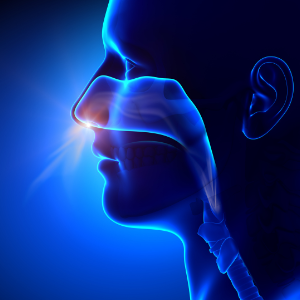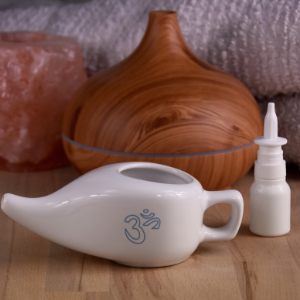Recurring sinus infections are common, extremely painful, and challenging to prevent or without accurate diagnosis and proper treatment. For many, it’s easy to fall prey to the false sense of security with disappearing symptoms only to end up shocked and dismayed when they return.
Recurring sinus infections are often confused with chronic sinusitis, which causes persistent or multiple sinus infections throughout the year. Although chronic sinus symptoms are a leading cause of missed workdays in up to 30 percent of the population, many people who experience symptoms have recurrent acute rhinosinusitis (RARS).
How Common Is Recurrent Acute Rhinosinusitis?
It’s normal for sinus infections to occur occasionally. However, recurrent acute rhinosinusitis symptoms that return at least 6 to 12 times a year indicate possible inflammation in one or multiple sinus cavities, anatomical irregularities, or both in the nose or airways.
Advanced medical treatment or minimally invasive surgery is the most effective option for long-term relief of recurrent or chronic sinusitis.
What Causes Recurrent Sinus Infections?
Sinus infections are caused by bacteria and viruses, usually after a cold, flu, or upper respiratory infection. They are also common in individuals with structural irregularities in their noses. Symptoms can be acute, meaning they occur infrequently, or they can be chronic, where they become recurrent.
Recurring sinus infections are common in individuals who suffer from repeat acute sinus symptoms. Chronic sinus inflammation can affect one or multiple sinus cavities in addition to the interior linings of the nose and airways.

- Allergies
- Nasal polyps
- Narrow sinuses or drainage pathways
- Deviated septum
- Enlarged turbinates
- Inflammation of the airways
- Structural abnormalities of the nose
Some health conditions can also elevate the risk of recurrent sinus infections like asthma, allergies, gastroesophageal reflux disease (GERD), autoimmune disorders, etc.
Are There Tests for Recurring Sinus Infections?
Anyone experiencing recurring sinus infections should see an ENT for a proper diagnosis and treatment. To accurately diagnose recurrent acute rhinosinusitis, the doctor reviews the patient’s health history, self-reported symptoms, and sinus treatment history to rule out common medical conditions that cause similar symptoms, such as asthma and allergies.
The most common symptoms associated with recurring sinus infections include:
- Red eyes
- Nasal congestion
- Fever
- Lingering or chronic coughing or sneezing
- Facial, mouth, or dental pain
- Post-nasal drip
- Discolored mucus discharge
- Lingering or recurring cold, COVID, or flu-like symptoms
- Sore throat
An examination of the internal bone and soft tissues in the nose and airways for signs of abnormalities like polyps, hypertrophied turbinates, etc., is also necessary, usually via nasal endoscopy in the office setting. The outcome of the medical evaluation determines the most effective treatments. Some patients may require additional diagnostic tests, such as bloodwork or in-office sinus CT scans.
Recurring Sinus Infections Treatment

With long-term use, store-bought decongestants, antihistamines, and other remedies eventually become ineffective. Severe infections can spread to the tissues surrounding the eyes, nose, and brain. In rare cases, sepsis, a life-threatening systemic body infection, can occur.
Self-Management Remedies for Recurrent Sinus Infections
Many people rely on the following standard practices to alleviate persistent or chronic symptoms to prevent difficulties in their daily lives.
- Warm compresses to reduce pain and discomfort from inflammation, pressure buildup, and infection in the sinus cavities and nasal tissues.
- Nasal irrigation devices, lavages, and techniques, such as neti pots, saline rinses, and steam inhalation to re-moisturize the soft tissues covering the nasal passages and thin the trapped mucus secretions to encourage proper drainage.
- Humidifiers to restore and maintain proper humidity levels in the air to prevent the nasal tissues from drying out.
- Rest to boost immune system response to fight the triggering infection.
- Increase hydration to detox infections, germs, and other impurities or toxins from the body and airways to help thin and drain mucus secretions.
- Pain relievers, decongestants, nasal sprays, over-the-counter meds, and steroids to soothe pain and inflammation and pain and reduce symptom severity and longevity.
Medical Treatments for Recurrent Sinus Infections
Prescription medications include antibiotics, oral steroids or intranasal steroid sprays, antifungals, decongestants, and antibiotics are used as a primary treatment for people with signs of inflamed or infected sinus cavities or nasal tissues.
Immunotherapy is also beneficial in treating recurrent sinus infections in patients with respiratory allergies. Medications are also necessary for patients with sinus symptoms due to swollen or inflamed nasal tissues, polyps, etc., to reduce congestion and widen the airways.
ENT Treatment for Recurring Sinus Infections
There are several safe and highly effective treatments for recurring sinus infections. Minimally invasive surgery and balloon sinuplasty are the most common treatments for recurrent sinus infections and is typically provided to patients whose symptoms return and do not improve with medications and self-care.
Sinus infections cause swelling, pain, and congestion and impair proper mucus drainage. The following ENT procedures can once and for all rid patients of these conditions:
Minimally Invasive Image Guided Endoscopic Sinus Surgery (FESS or MIGSS)
Los Angeles sinus surgeon Dr. Alen Cohen, is one of the creators of Minimally Invasive Image Guided Endoscopic Sinus Surgery (MIGSS™). This outpatient sinus surgery does not require any incisions to the face, yet efficiently and effectively targets diseased areas within the nose and sinuses. As a result, none of the healthy tissue within the sinus cavity is disturbed in patients who undergo Minimally Invasive Image Guided Endoscopic Sinus Surgery as only the diseased areas are addressed.
Balloon Sinuplasty
As a minimally invasive in-office procedure to relieve sinusitis, Dr. Alen Cohen has treated thousands of patients throughout greater Los Angeles and Southern California who are suffering from sinusitis. Sinusitis is an incredibly common condition affecting millions of people each year. Sinusitis is commonly caused by inflammation of the paranasal sinuses and may also result from allergies, nasal polyps, chronic infection (bacterial or fungal), autoimmune disorders or chronic nasal obstruction due to a deviated septum or enlarged turbinates. Sinusitis commonly results in sinus headaches, facial and sinus pain, chronic runny nose/postnasal drip, chronic cough, recurrent ear or eye infections, ear congestion or fullness, and even tooth pain.
Surgery is the most effective treatment option for patients with infections that are resistant to home remedies, medications, and other non-invasive treatments. Some patients may require a combination of medication and procedures to correct anatomical issues.
Fortunately, many modern medical treatments for recurrent sinus infections are available to patients on an outpatient basis and performed the same day.
Currently, sinus infections are incurable, and their symptoms can make anyone feel miserable and interfere with their daily functions and overall health. But, proper and timely treatment improves respiratory function and health. Many people who experience recurring sinus infections enjoy a significant reduction in symptom duration, severity, and frequency after seeing Dr. Alen Cohen rated the best ENT specialist at the Southern California Sinus Institute.

